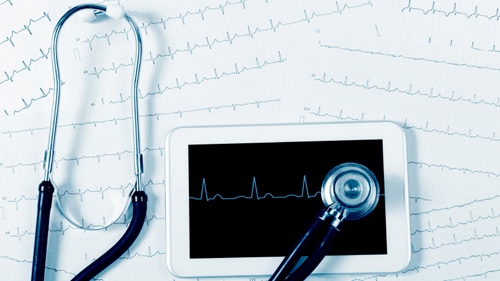In a meeting with FDA officials, senior Apple executives say they have both an opportunity and an obligation to do more in mHealth.
June 12, 2014

Passionate entrepreneurs often believe that they have a moral obligation to make the world a better place or at the very least change the status quo. That can lead to surprising and welcome disruptions in the way things are done.
Now it appears that this is precisely how Apple is viewing its role in the digital health marketplace.
Apple Toolbox, a blog devoted to all things Apple, submitted a Freedom of Information Act request to the Food and Drug Administration after it became public knowledge that the California technology company had met FDA officials in December, the latest in several meetings with the agency. The website finally received a response from FDA, which shows that Apple executives feel they have a moral obligation to do more in mobile health by leveraging mobile technology platforms and helping people to learn more about themselves.
Here are the key details from their meeting according to the FOIA response:
FDA officials who attended the meeting were Margaret Hamburg, Commissioner; Sally Howard, Deputy Commissioner for Policy, Planning and Legislation; Jeffrey Shuren, Director, Center for Devices and Radiological Health; Bakul Patel, Senior Policy Advisor, CDRH; and Jeff Shiffman, a policy analyst at the FDA
From Apple there were, Jeff Williams, Senior Vice President of Operations; Bud Tribble, Vice President of Software Technology; Cathy Novelli, Vice President of Worldwide Government Affairs; Michael O’Reilly, Vice President of Medical Technologies; and Tim Powderly, Director of Federal Government Affairs
Apple considers FDA's mobile medical app guidance fair in response to Congressional inquiries that wondered whether the guidance was too "heavy handed."
There is a potential for having more sensors on mobile devices but Apple wants to be sure that it is not going against agency rules but rather is on the side of FDA
FDA does not necessarily regulate sensors but will likely regulate the software running the sensor if the manner the software is deployed makes the device containing the sensor a mobile medical device.
A glucometer used for simply better nutrition is not going to be regulated but one marketed to diabetics will more than likely come under the agency's purview.
Apple intends to work earlier with FDA on future products so that they are not caught unaware if the device being developed needs to be regulated.
Apple executives also said that while FDA's guidance about how it intends to regulate mobile medical apps is fair and balanced, industry will continue to push boundaries. Looks like agency officials will have their hands full in trying to oversee the Wild West aspect of mHealth where companies like Apple, Samsung and Google as well as individuals in garages try to take advantages of the opportunity it presents.
[Photo Credit: iStockphoto.com user Lisa-Blue]
-- By Arundhati Parmar, Senior Editor, MD+DI
[email protected]
You May Also Like


